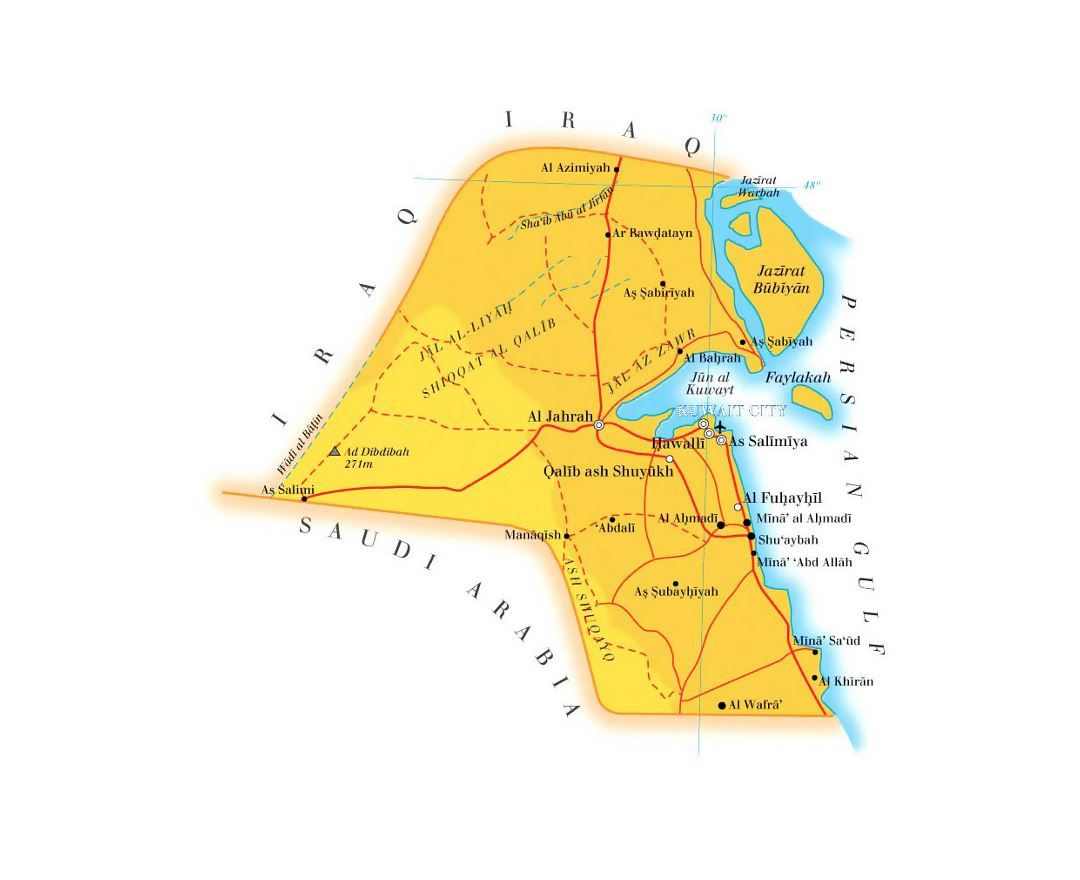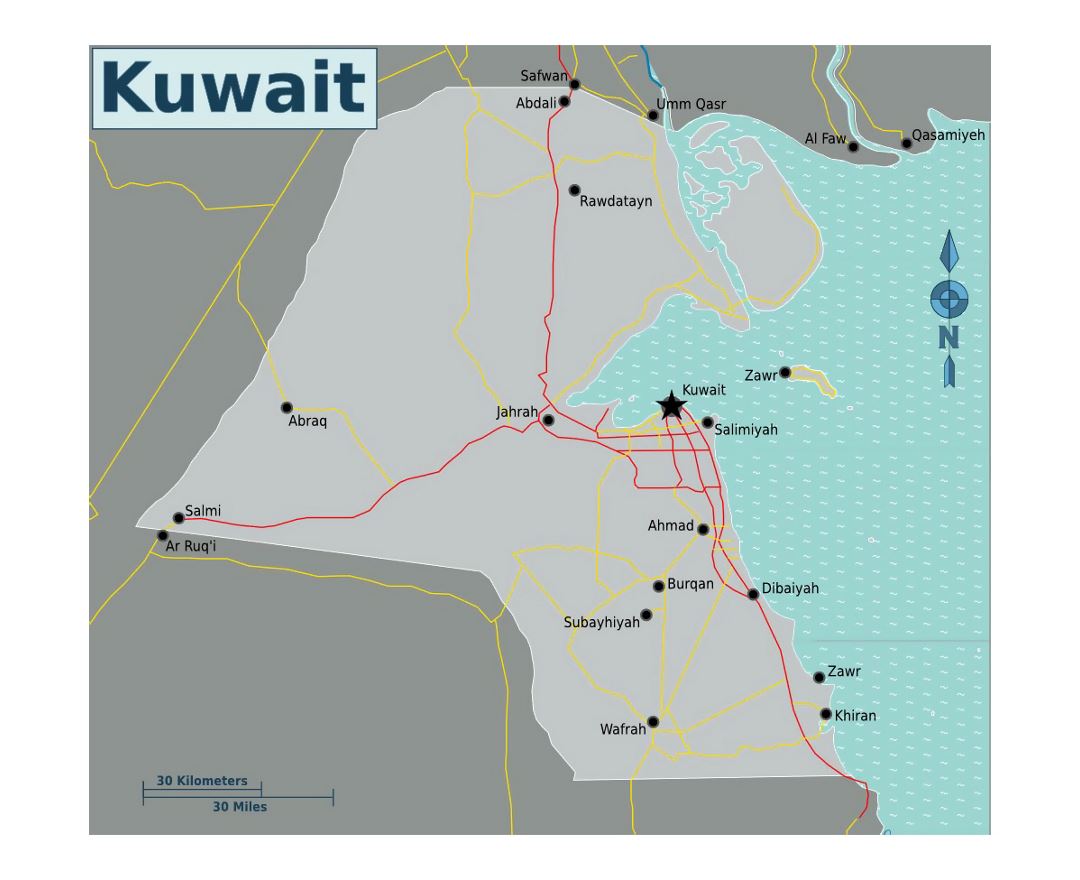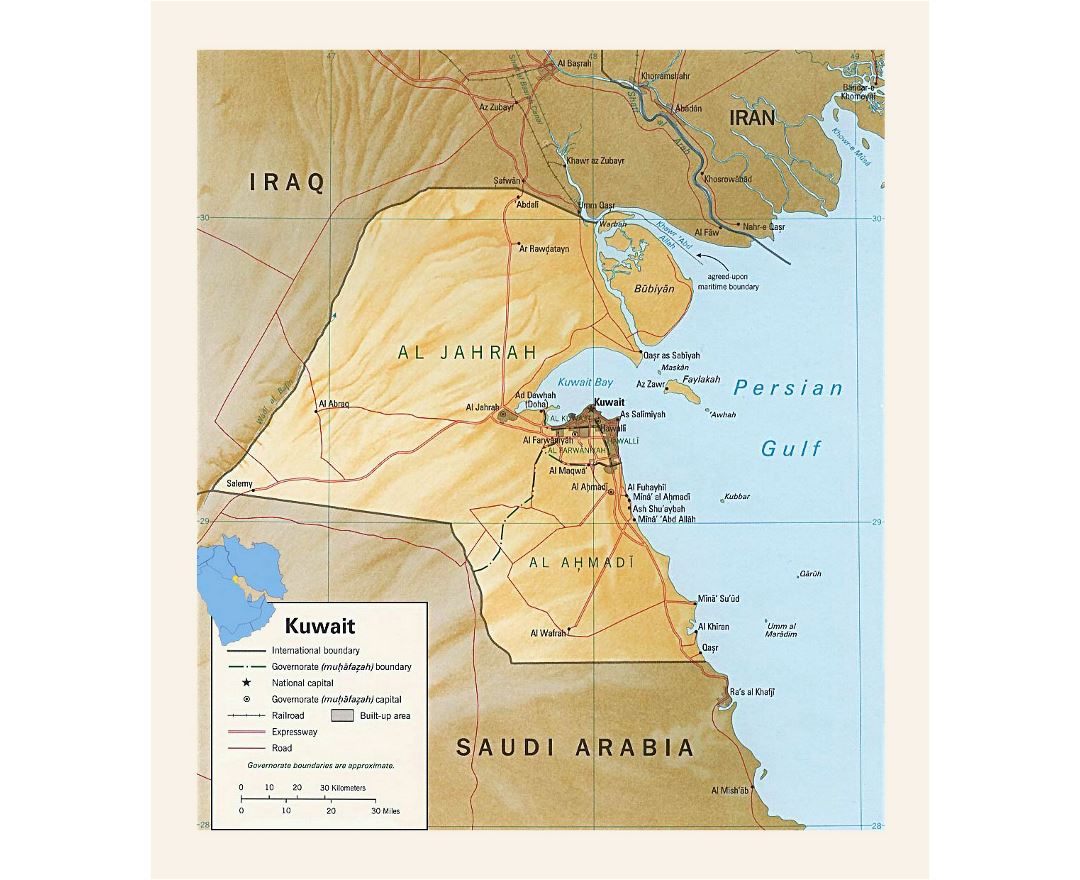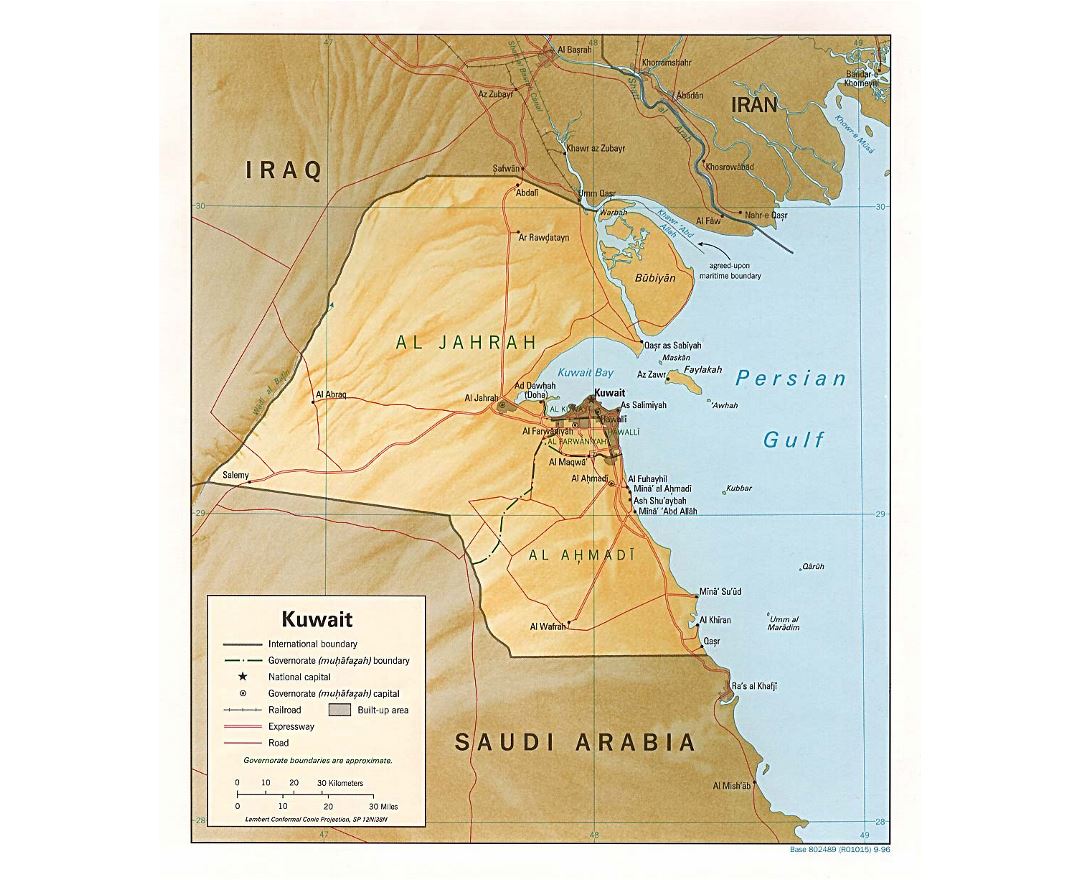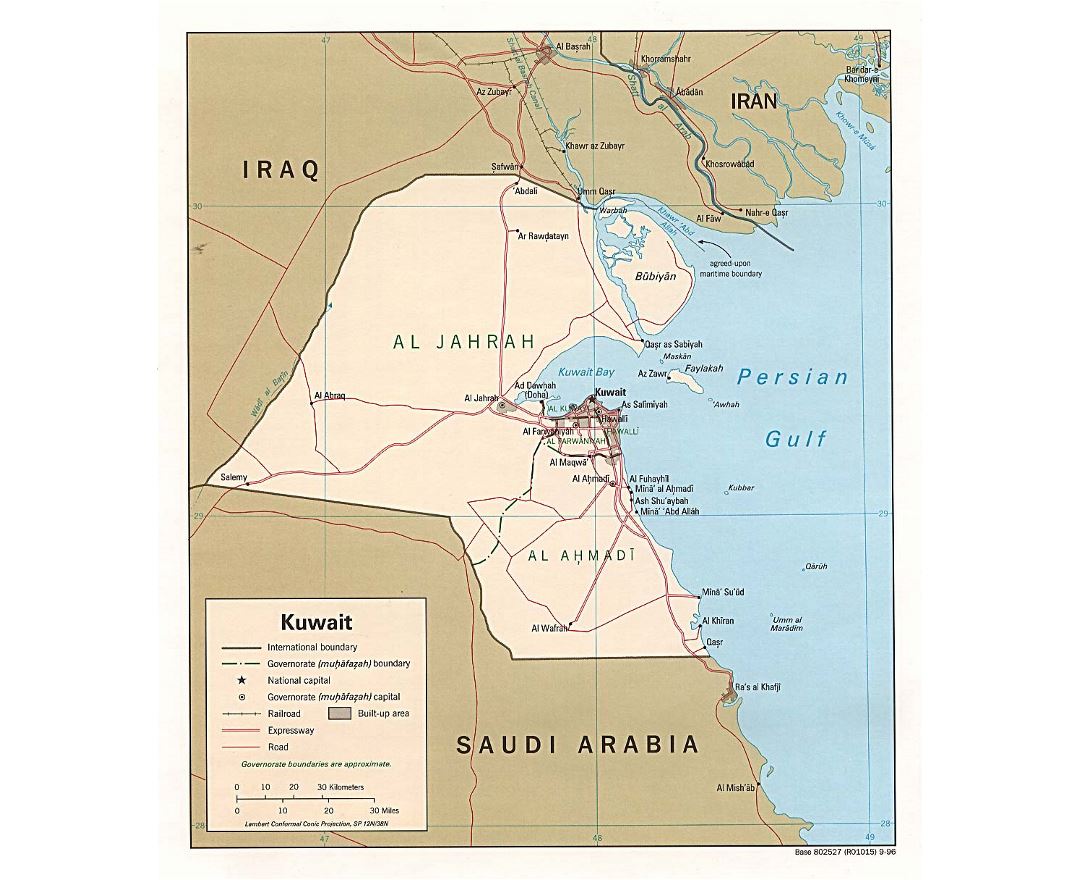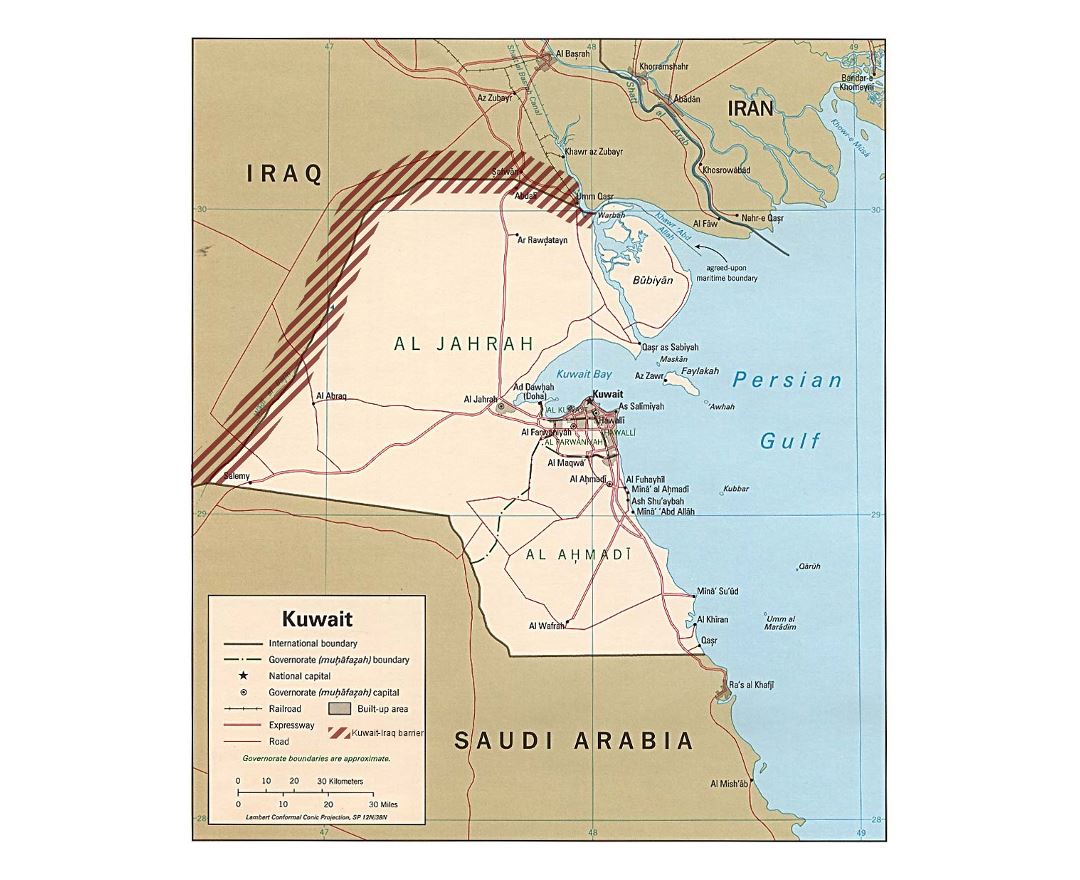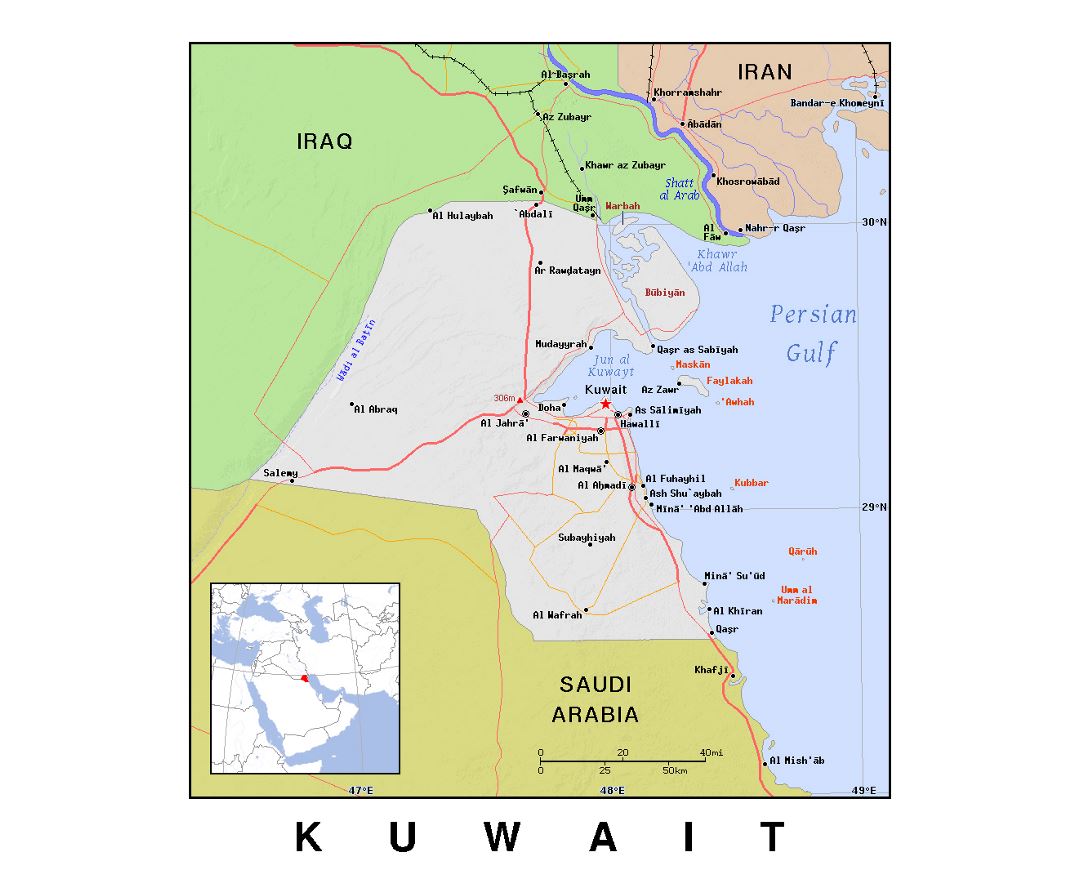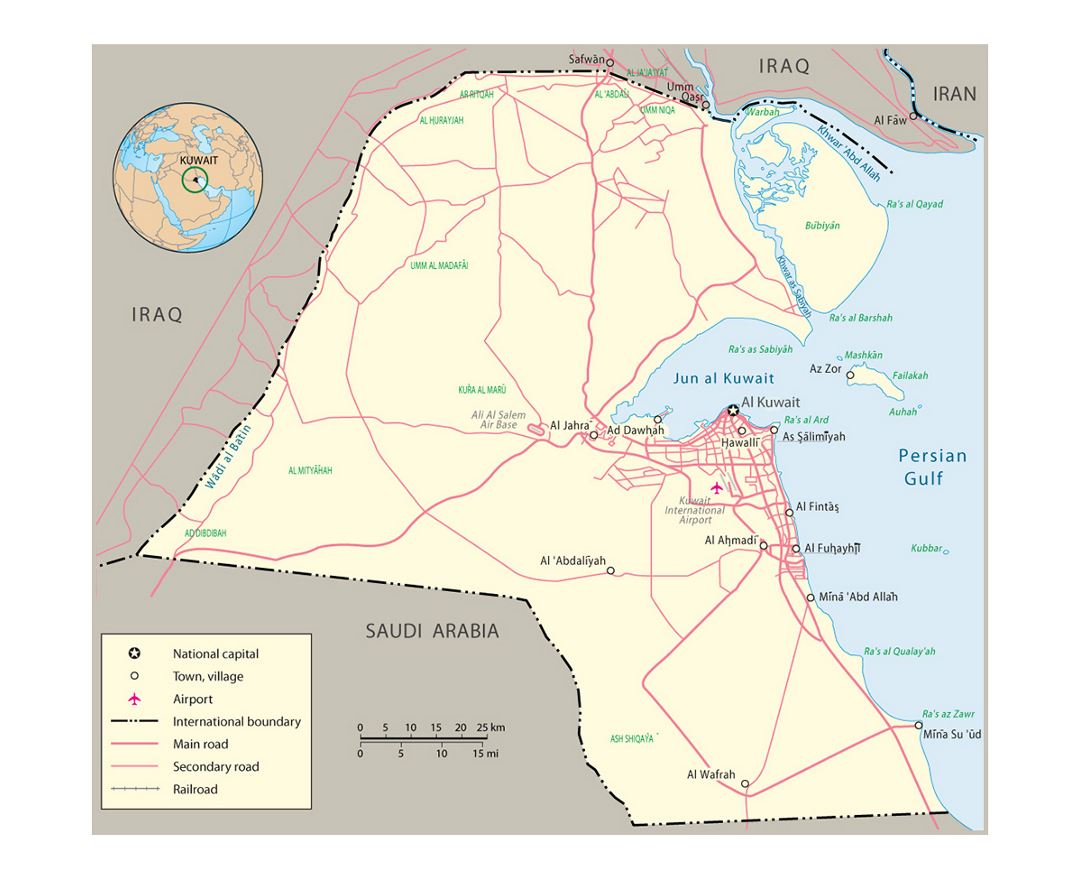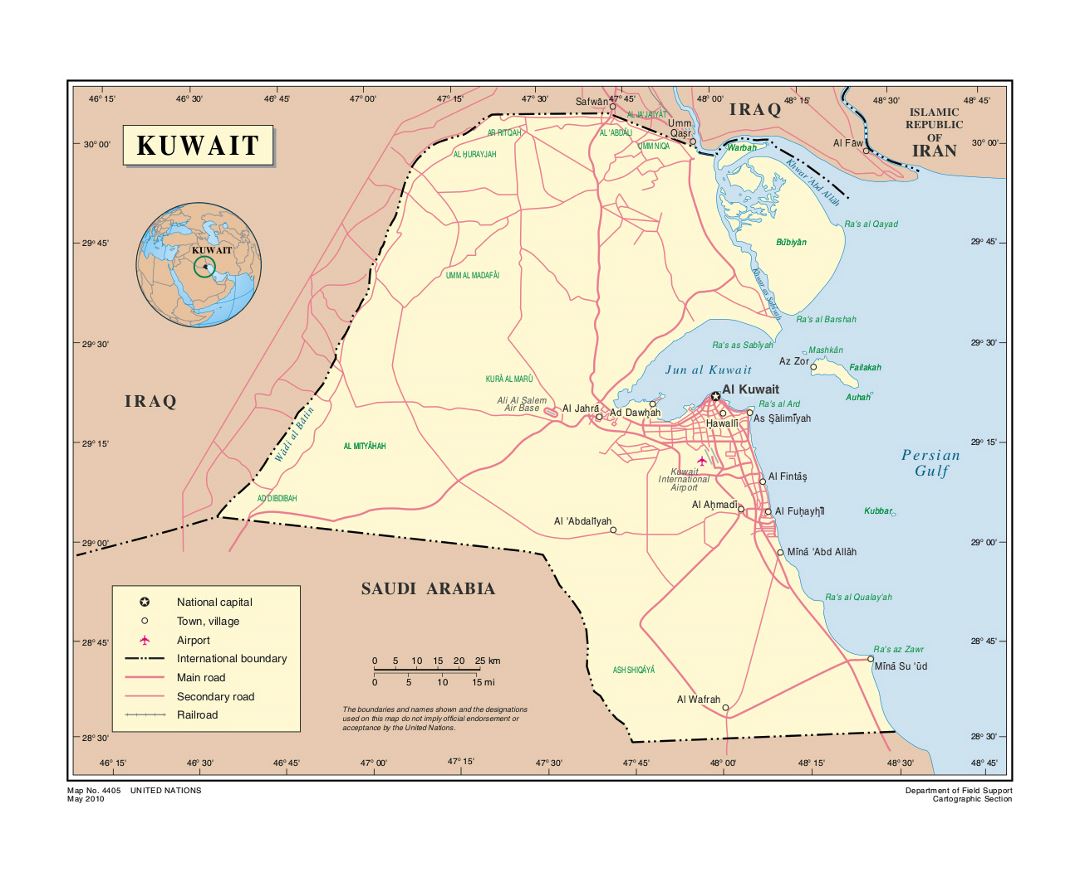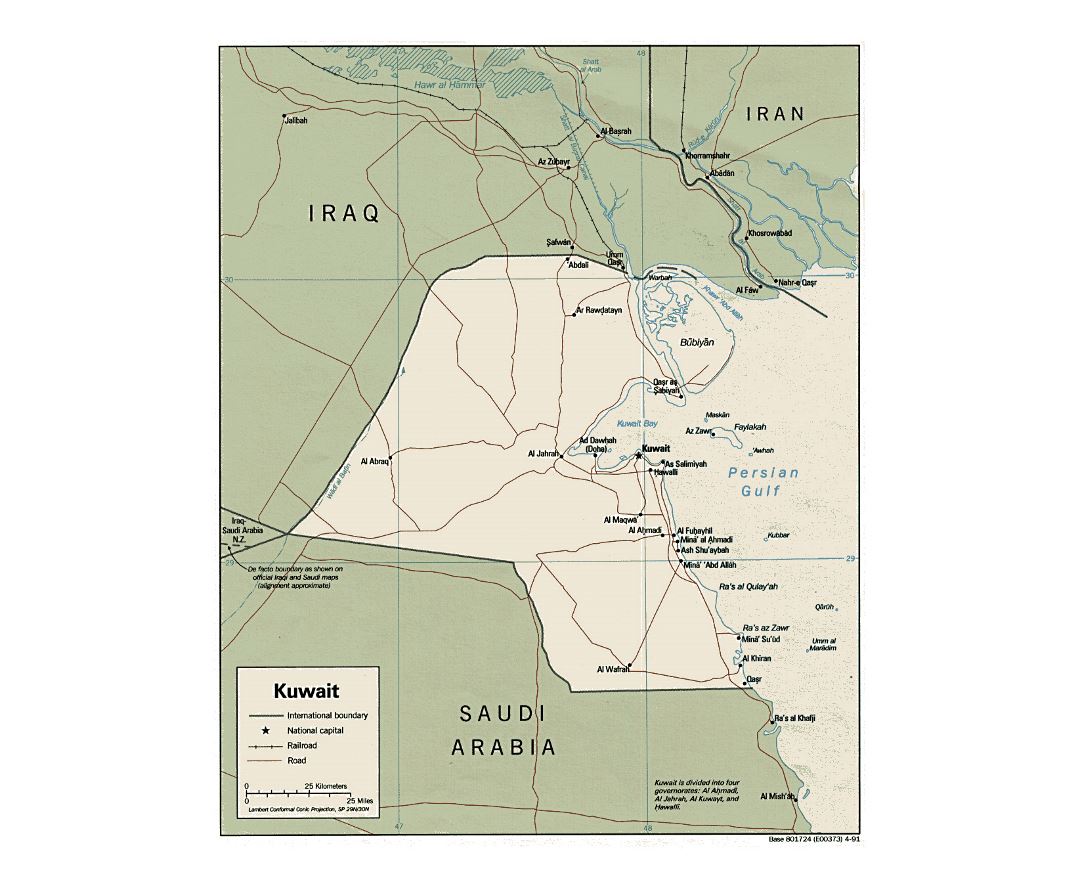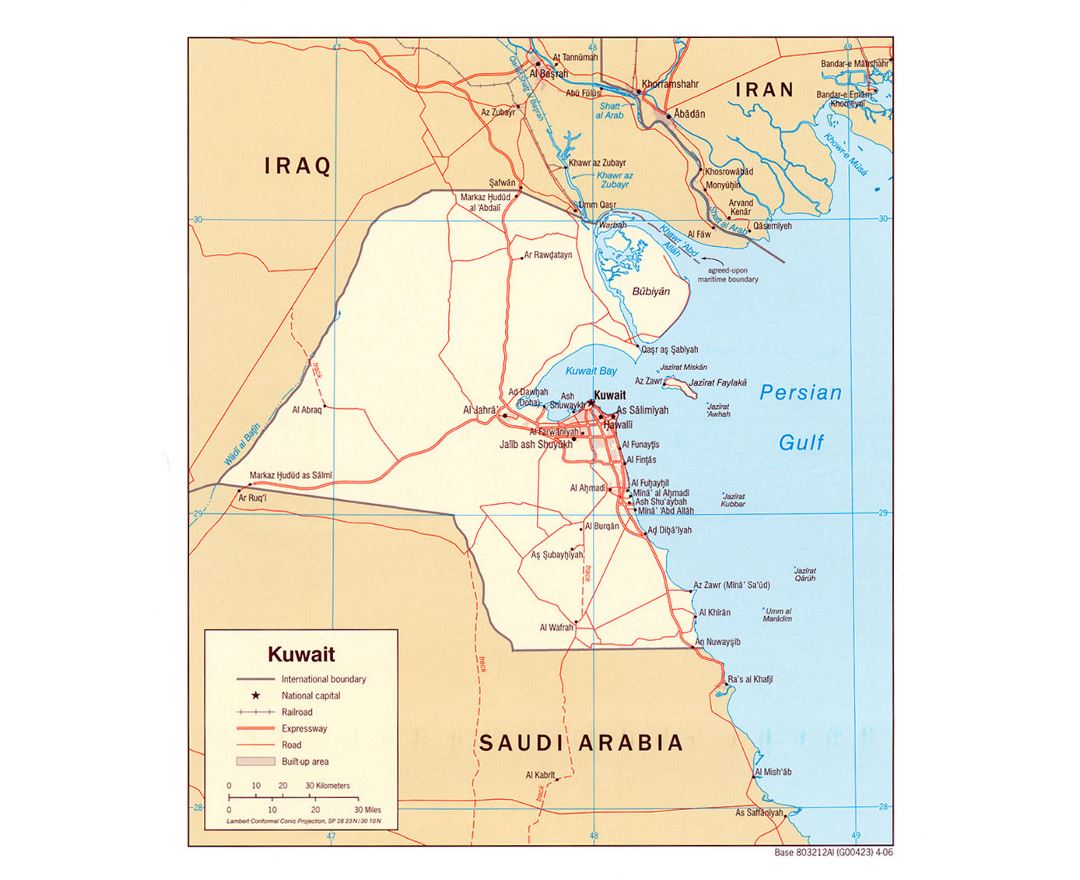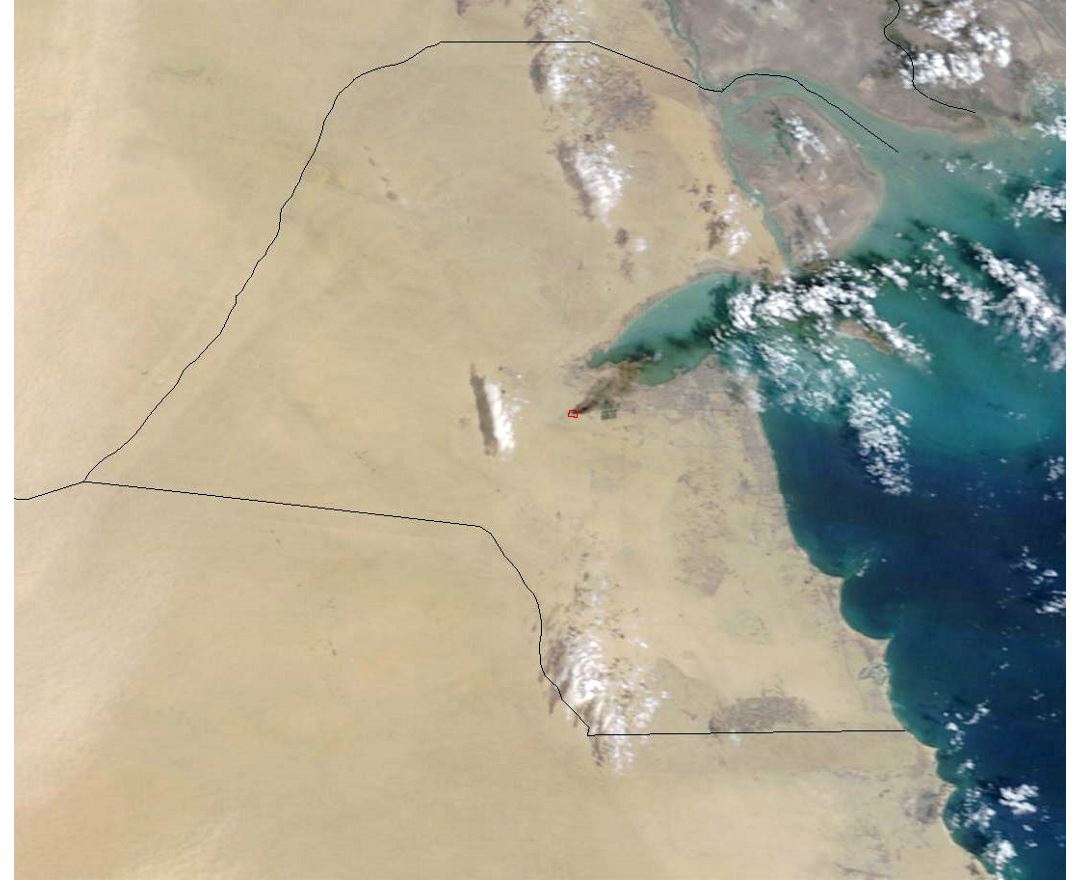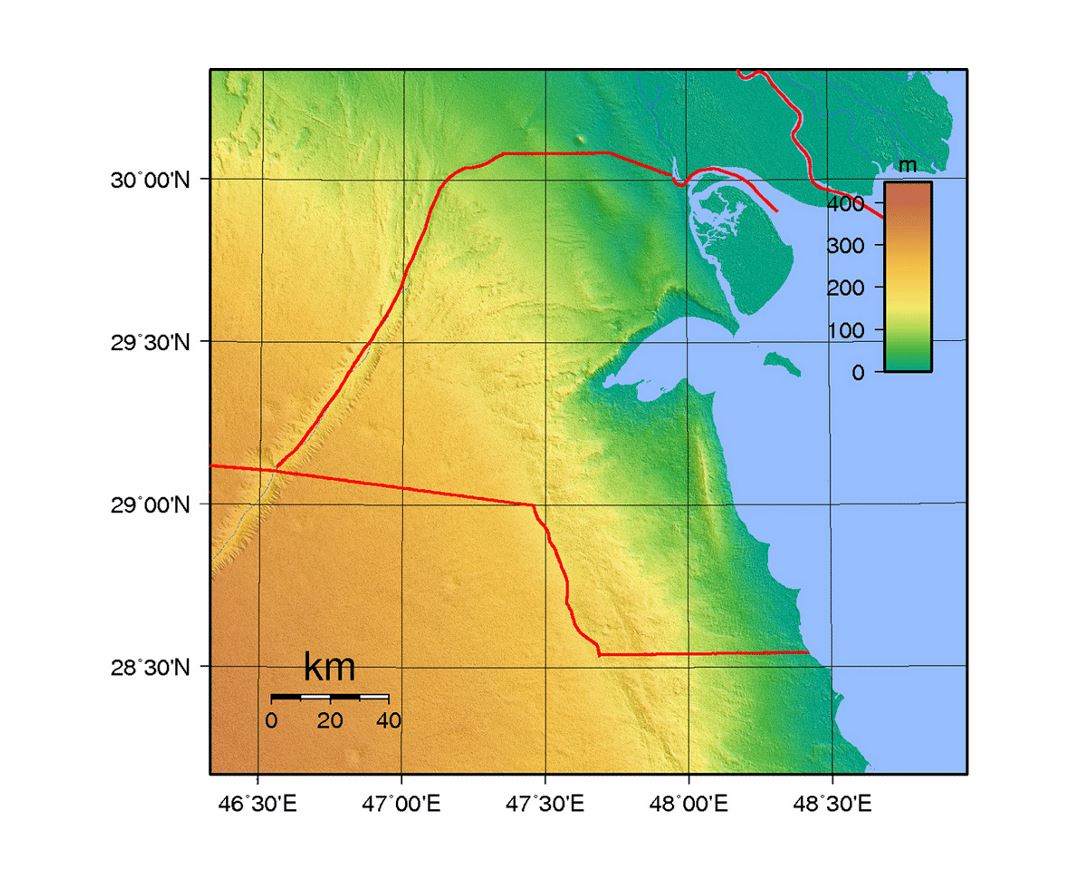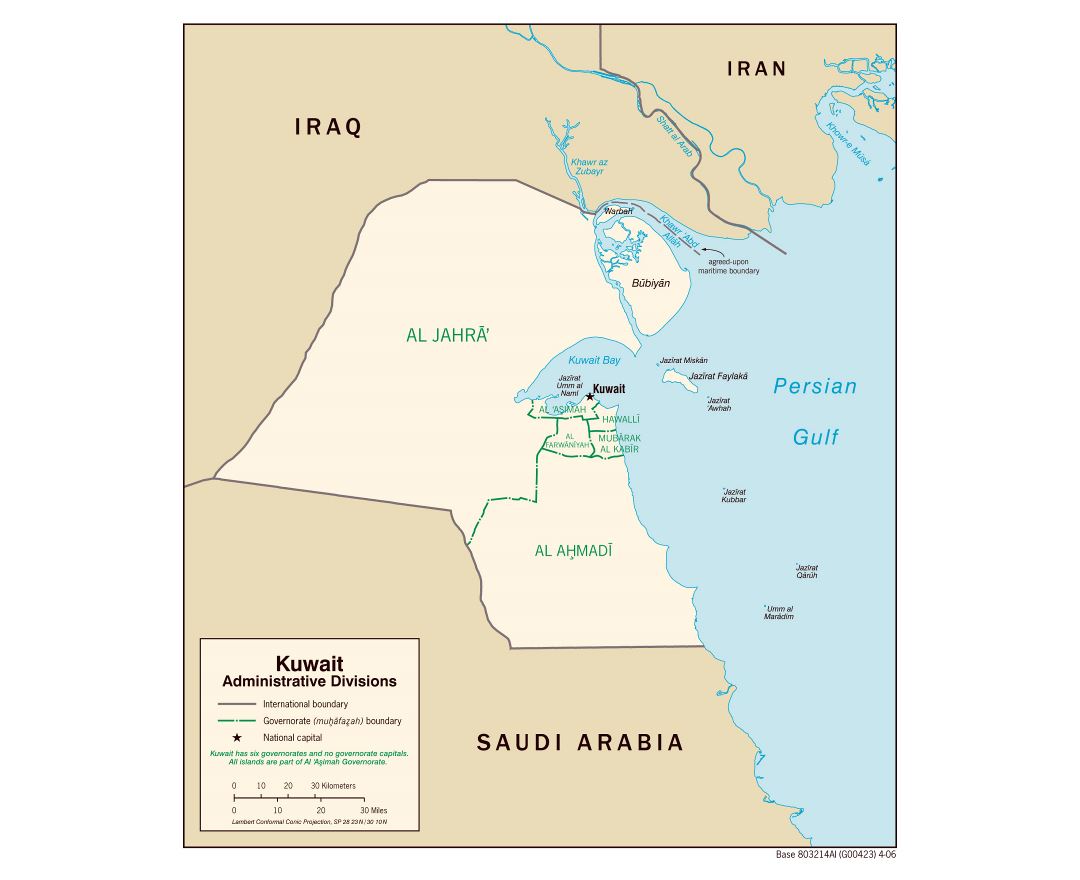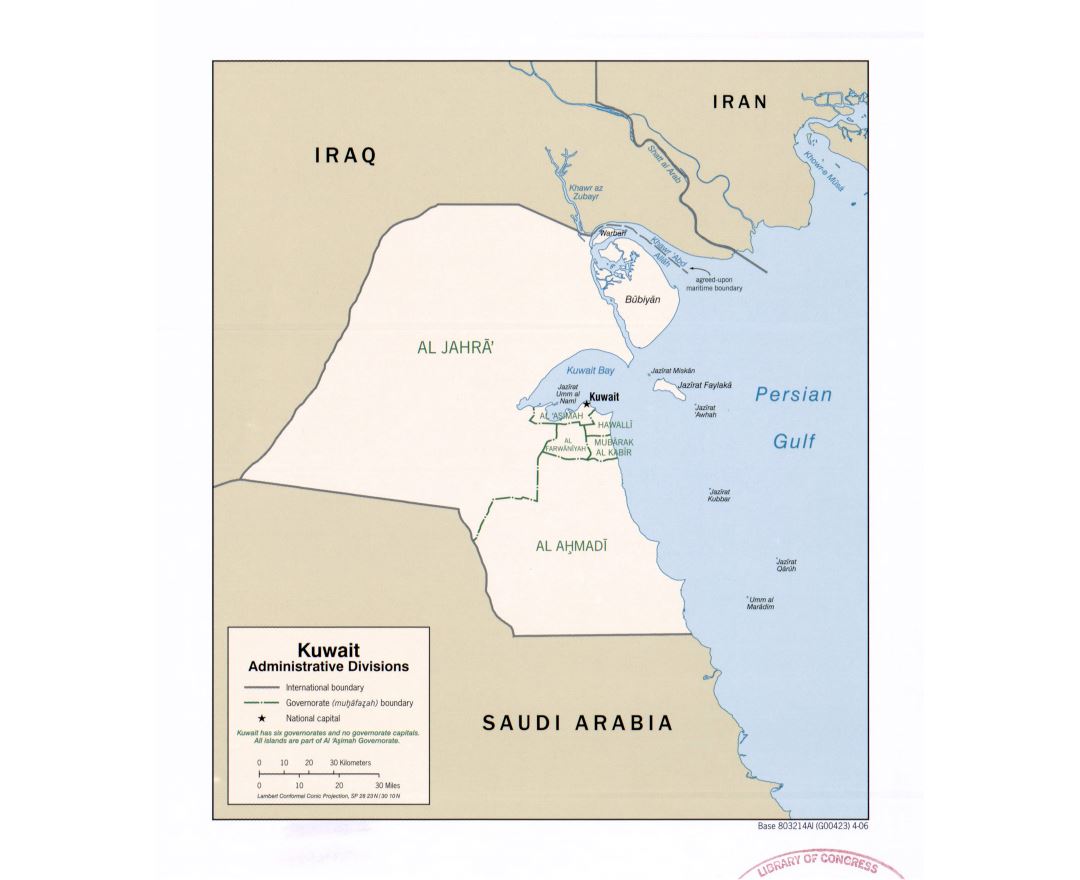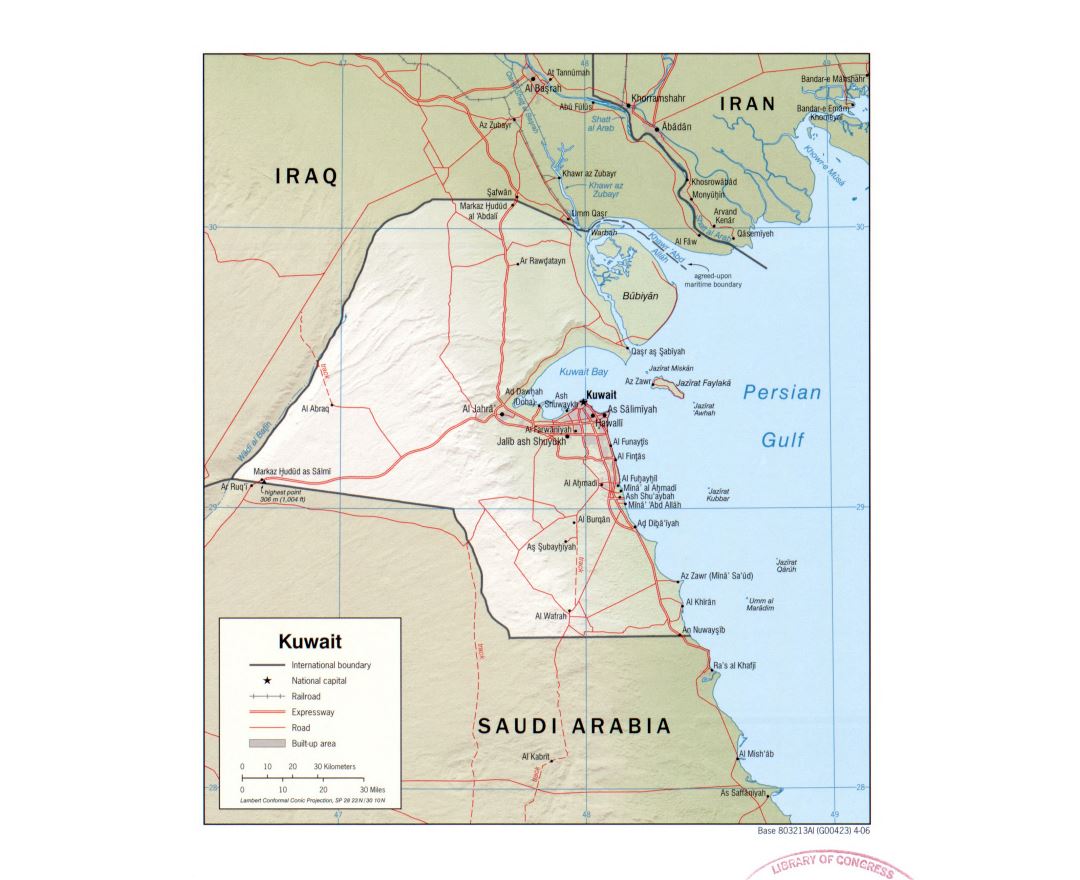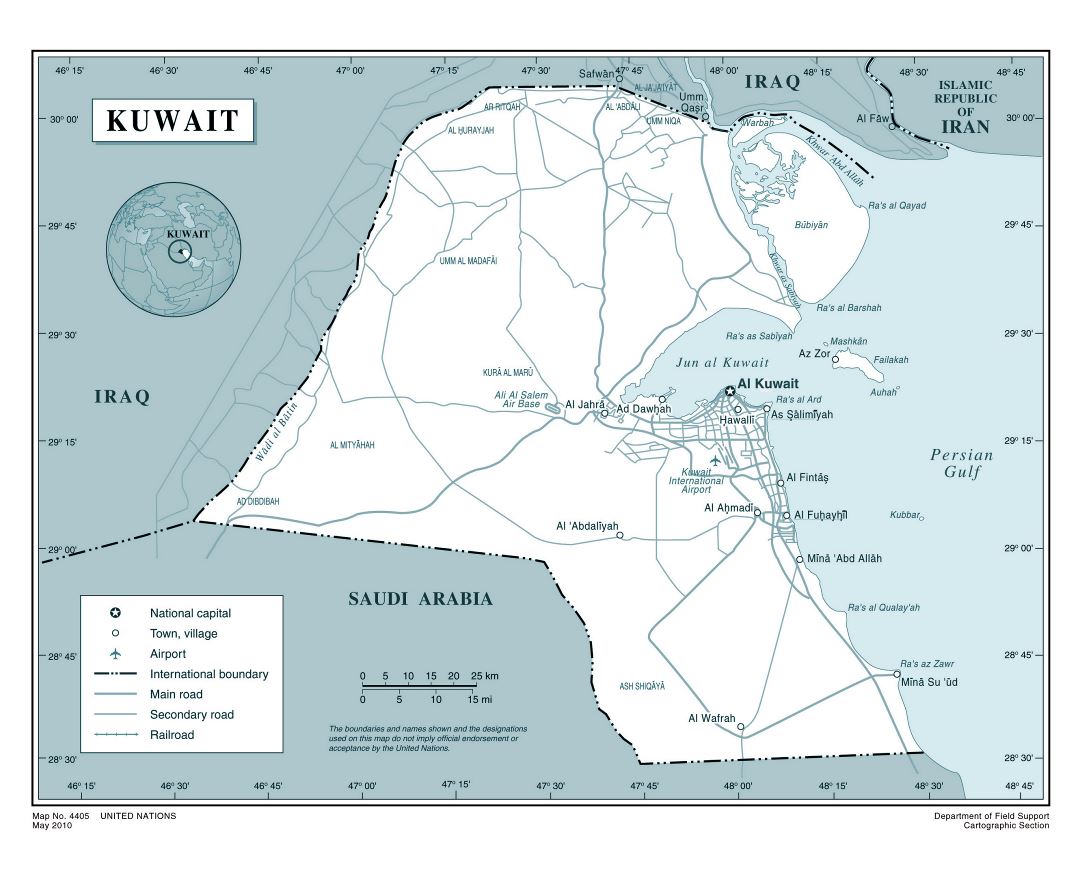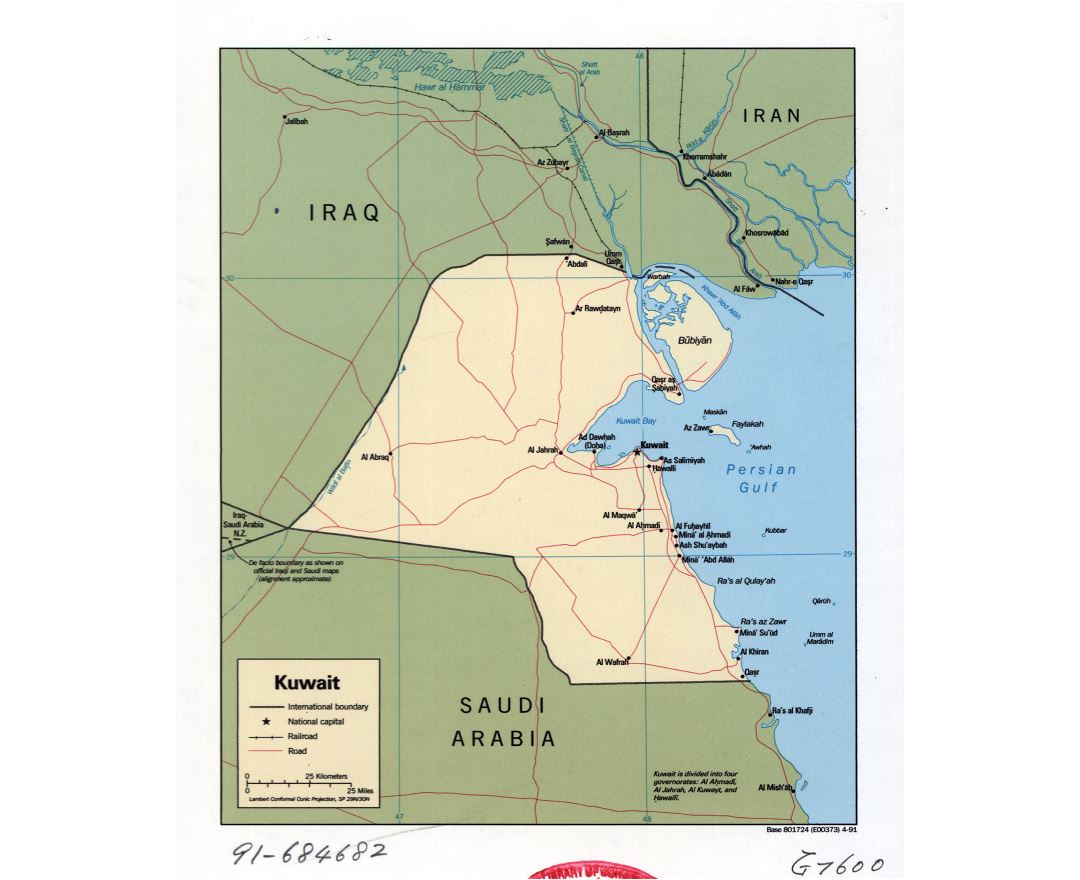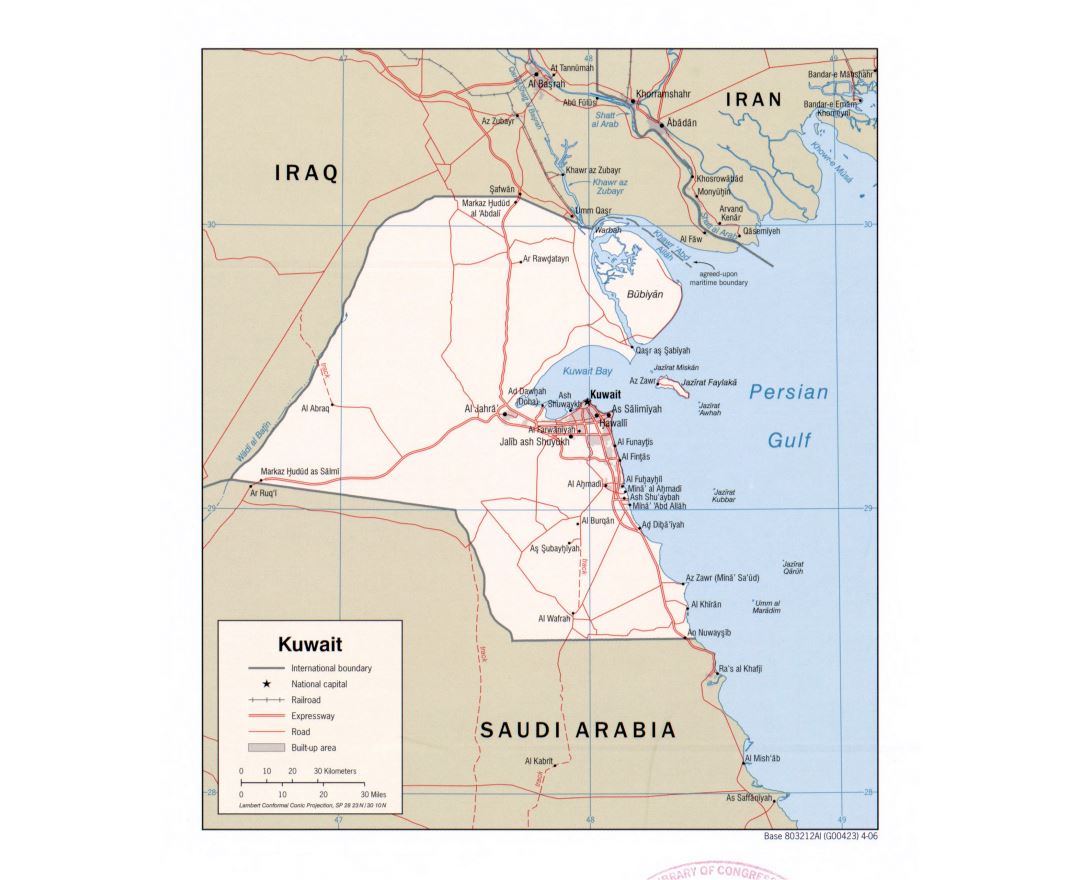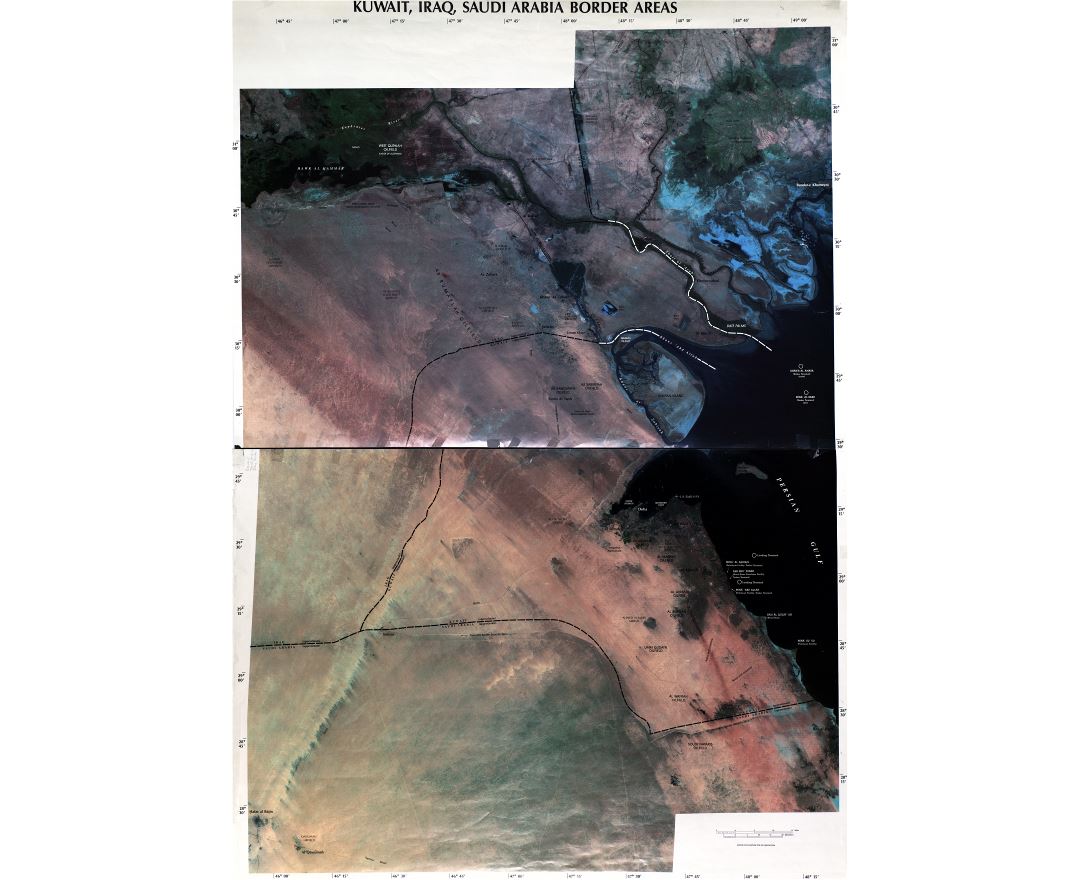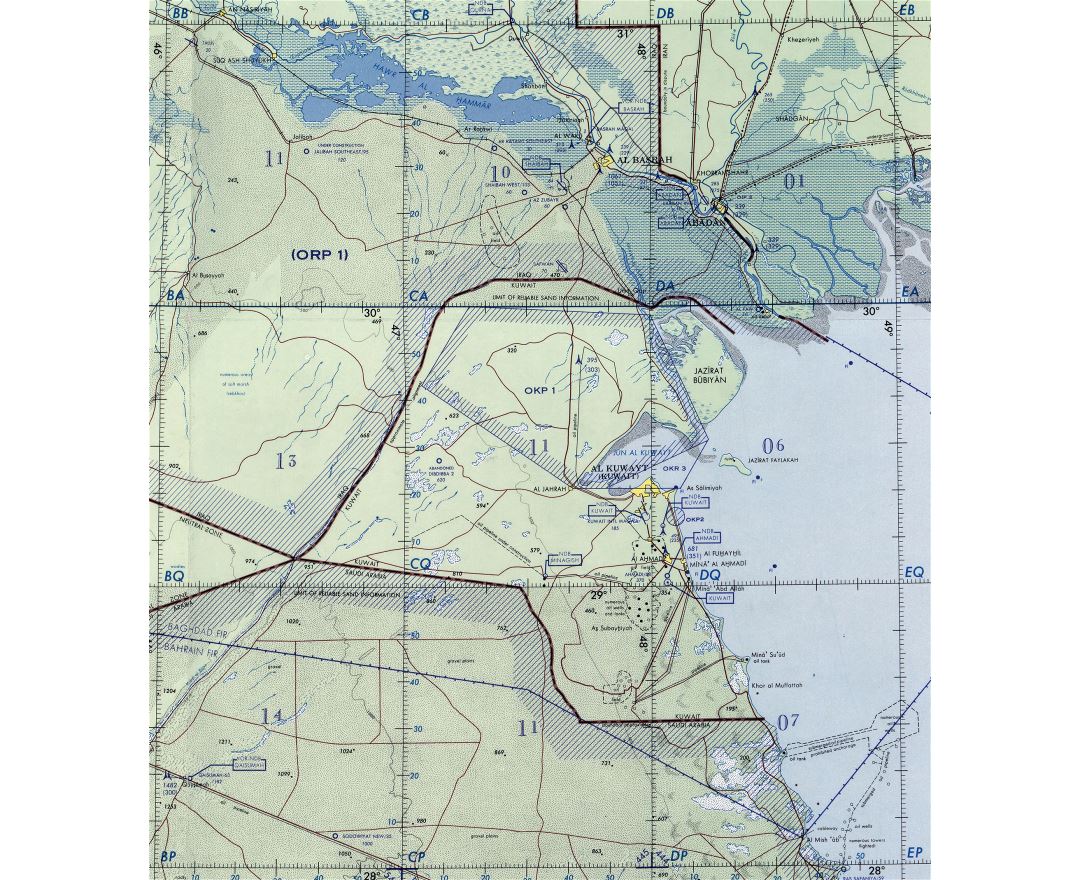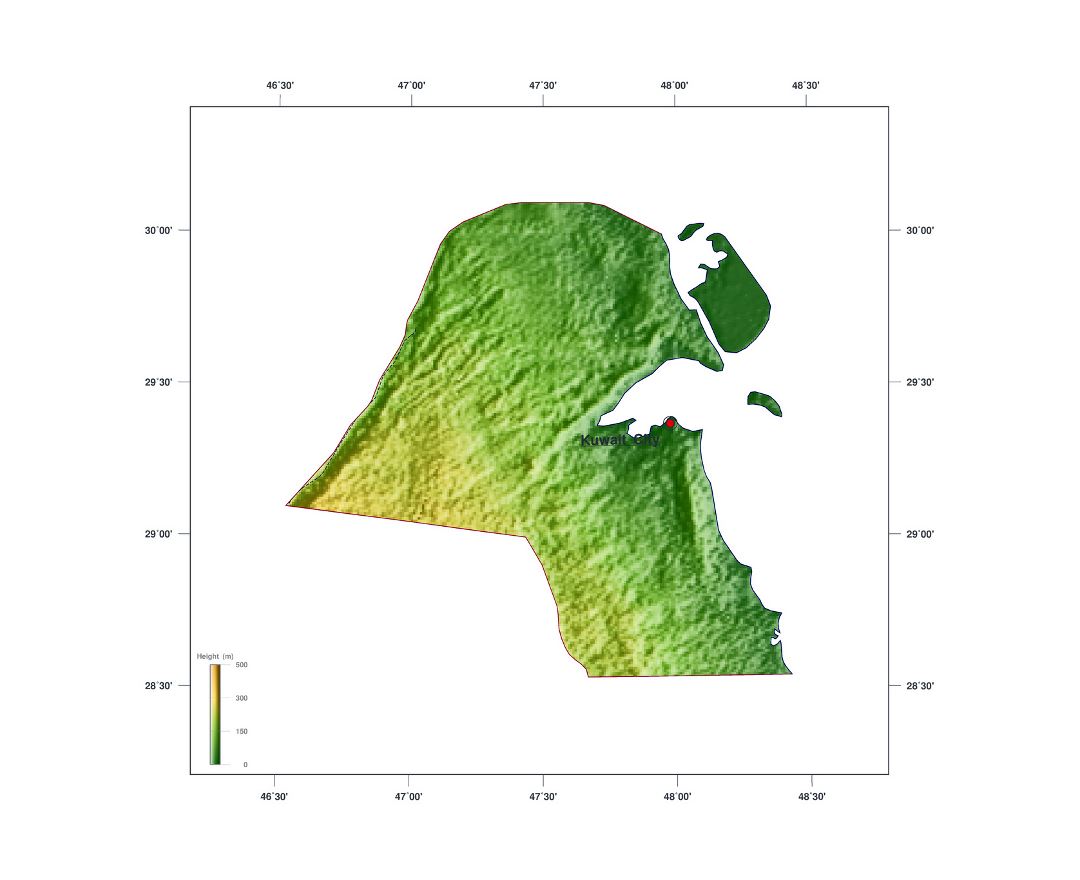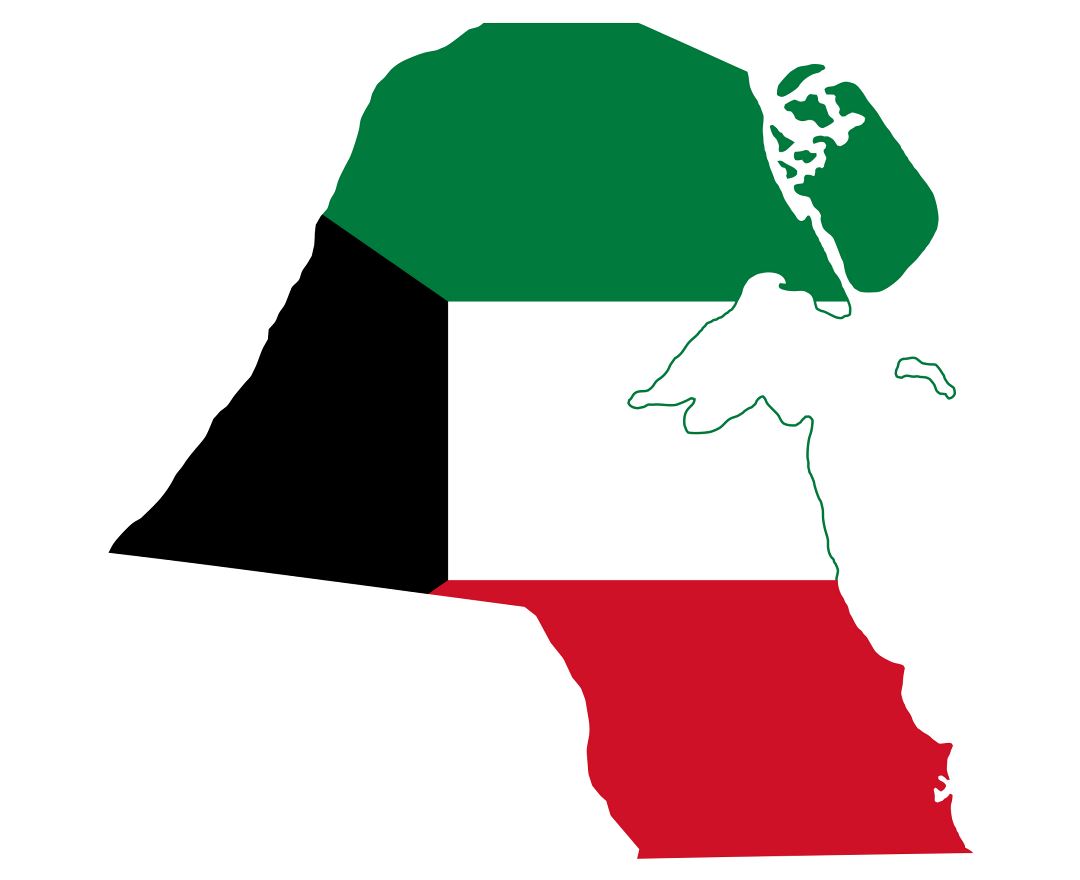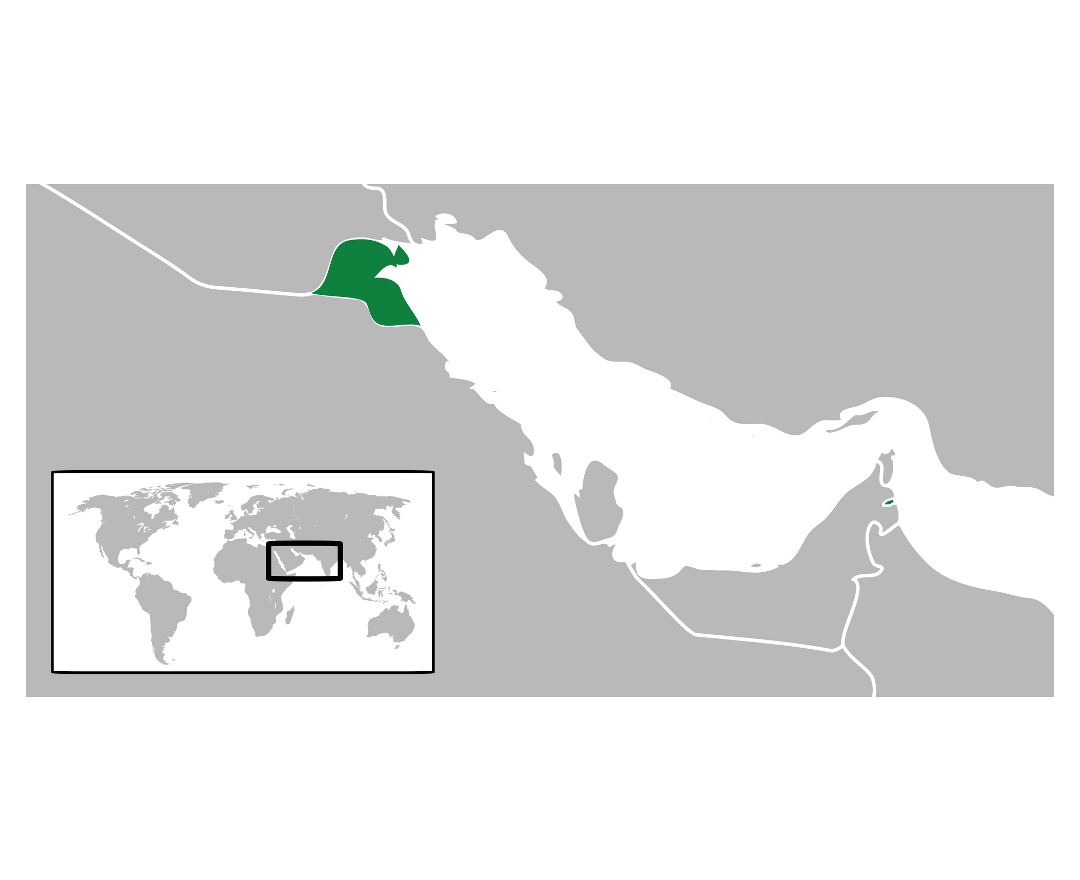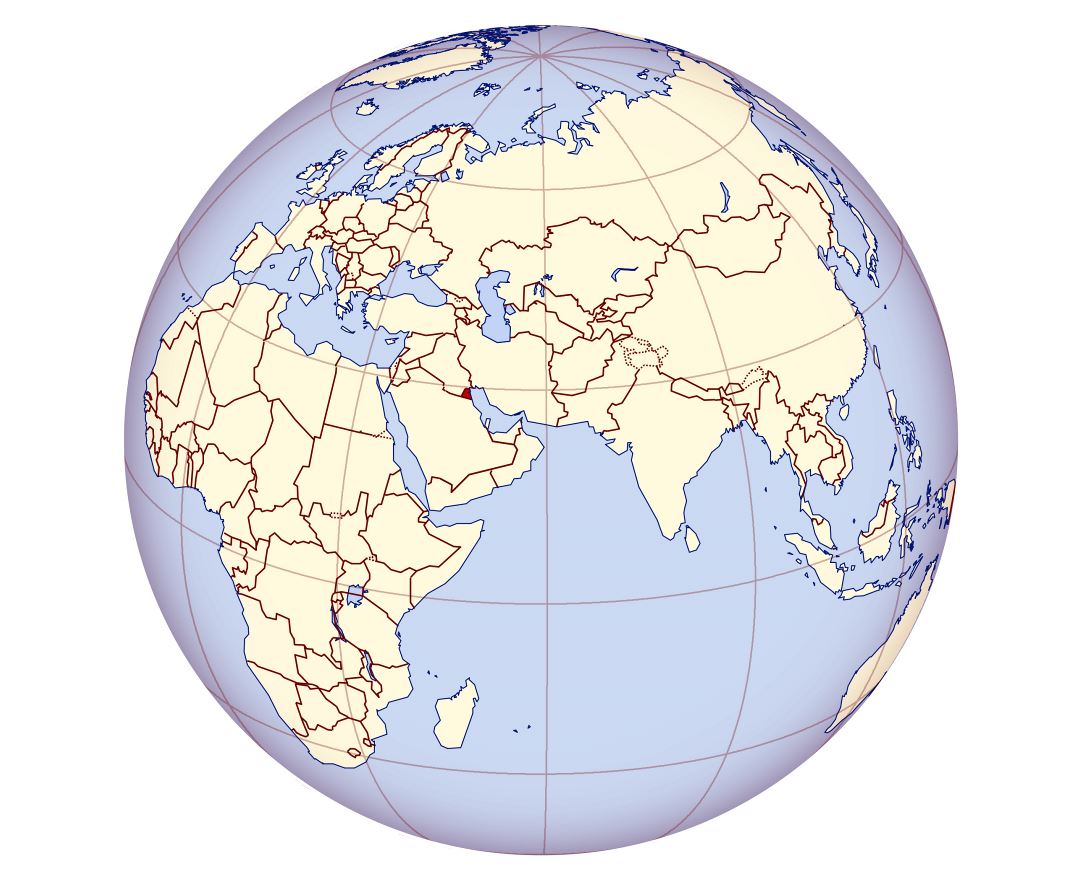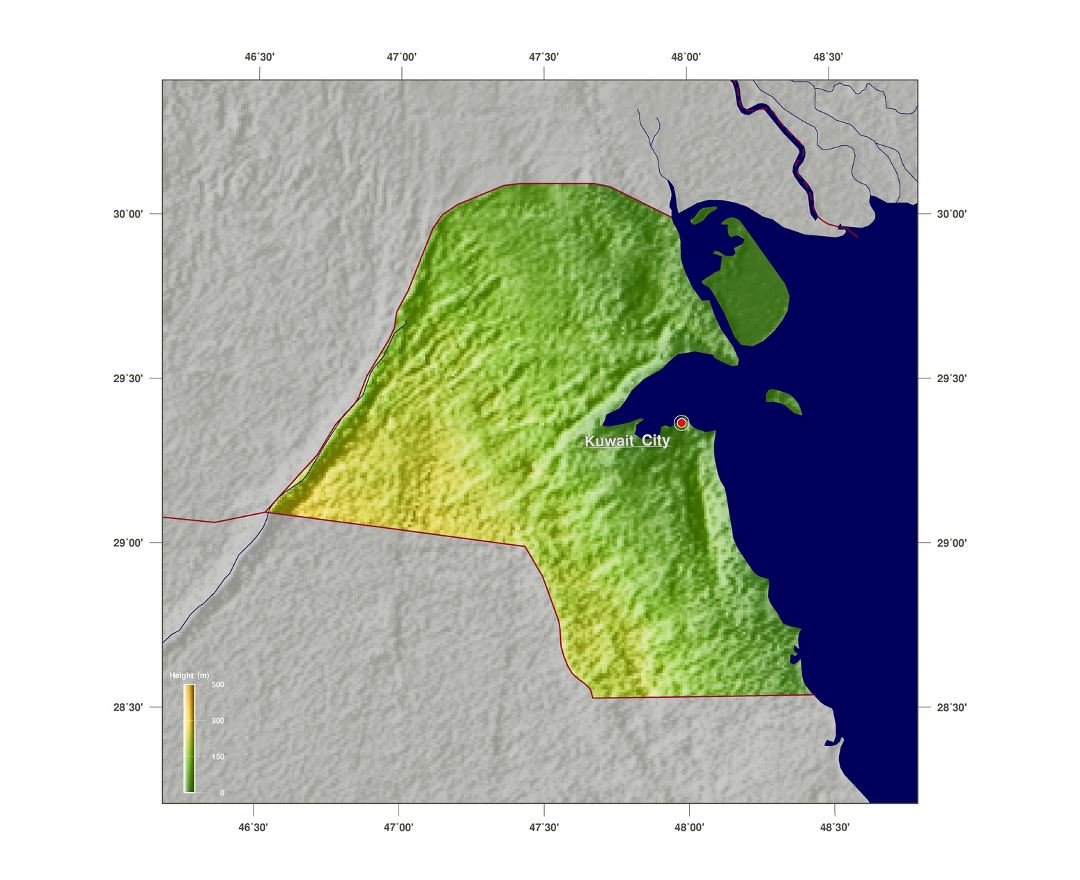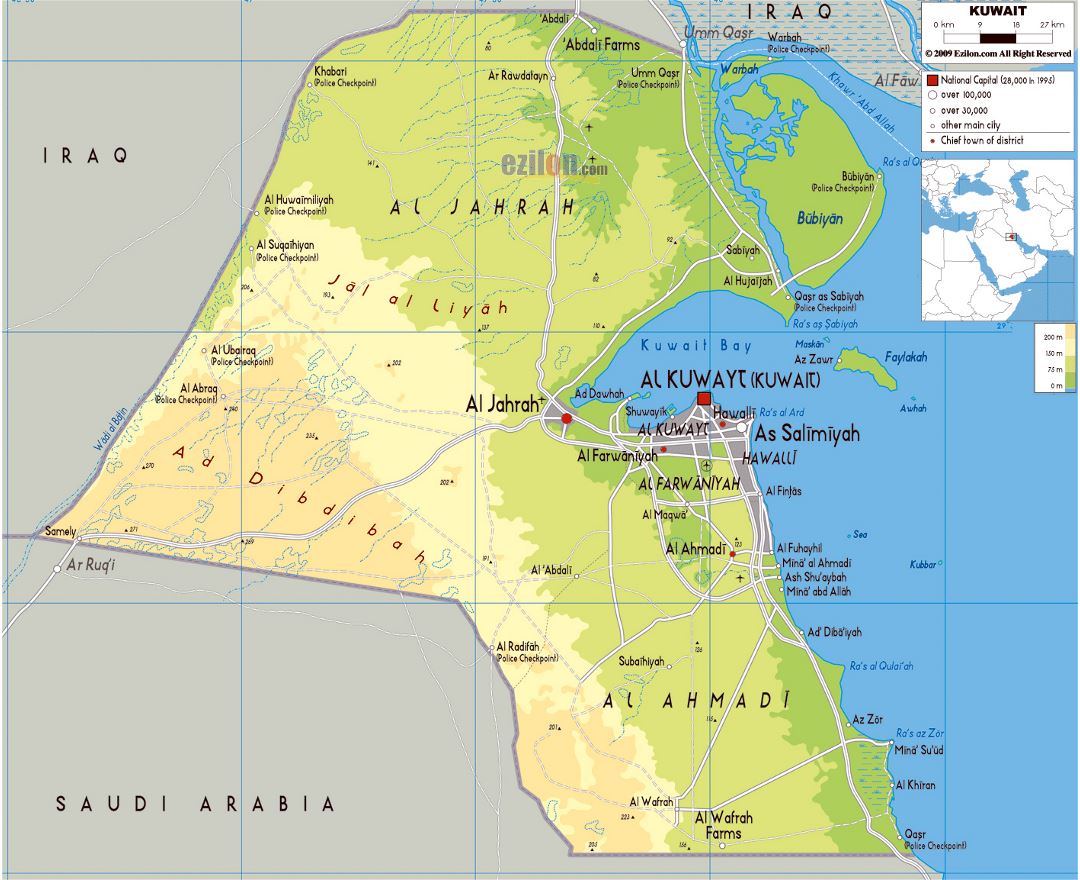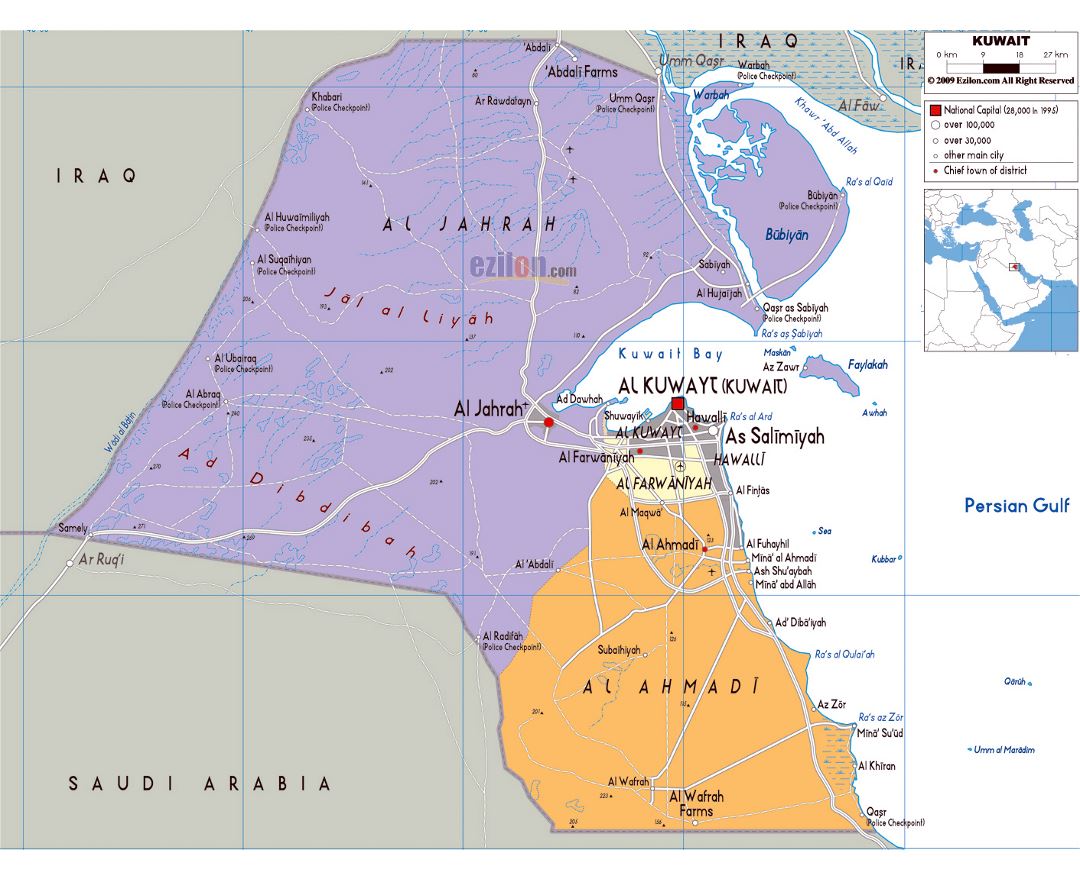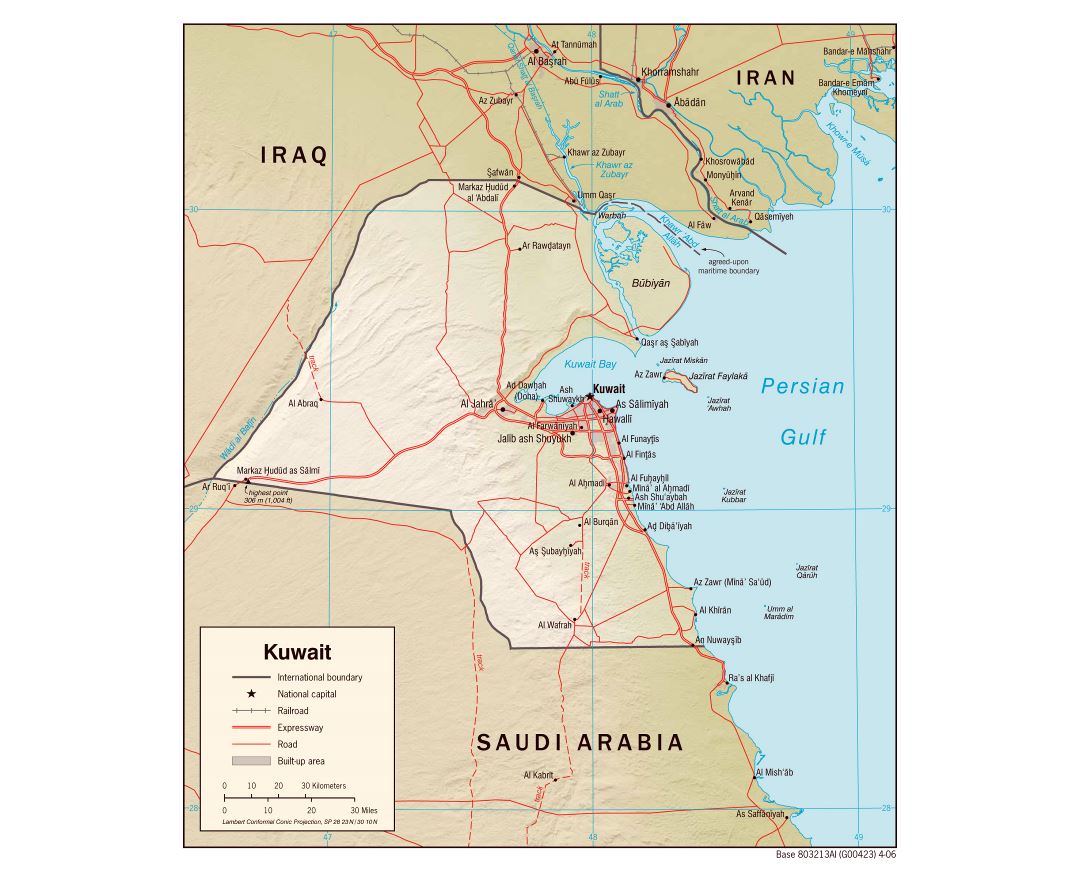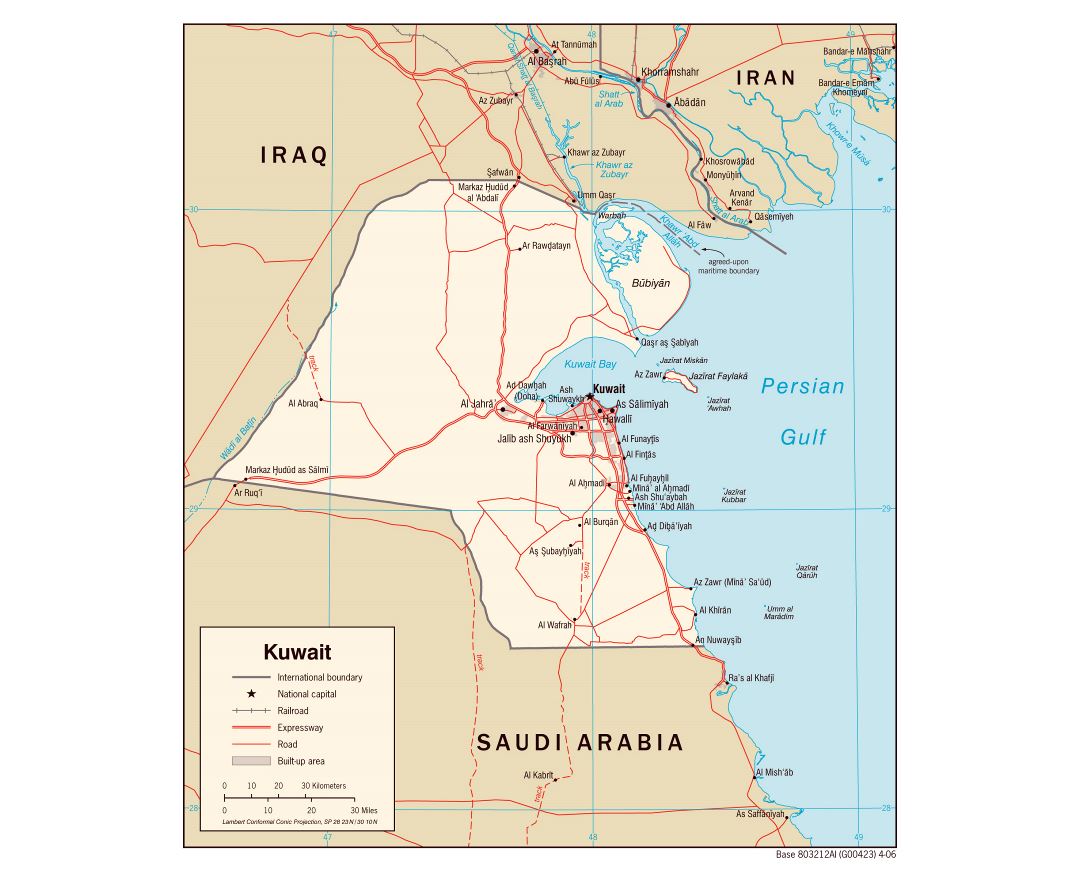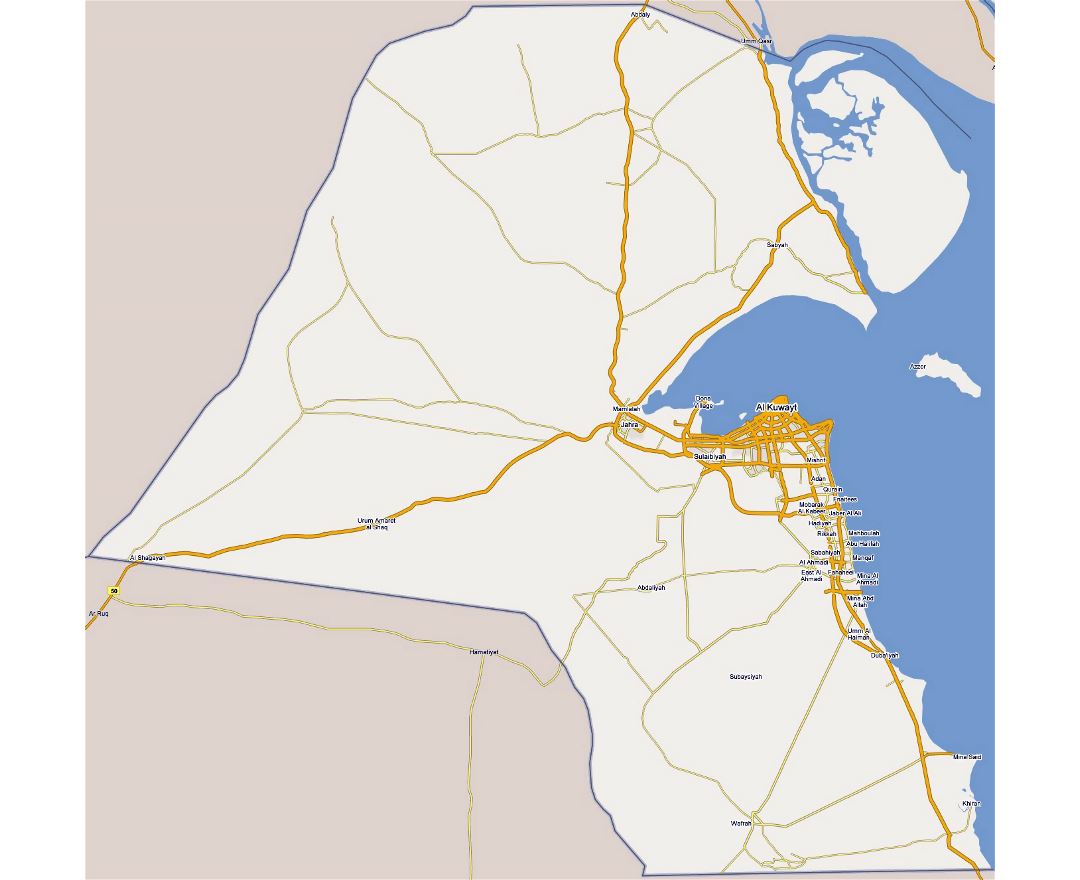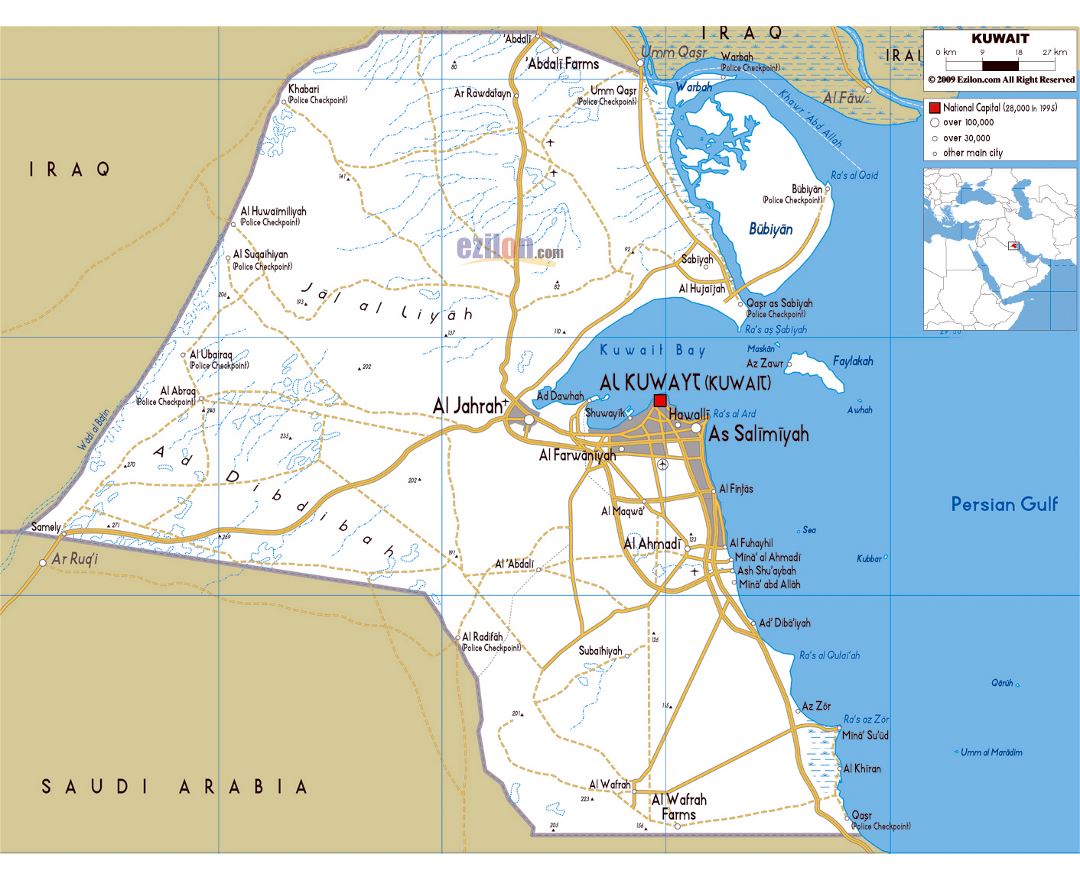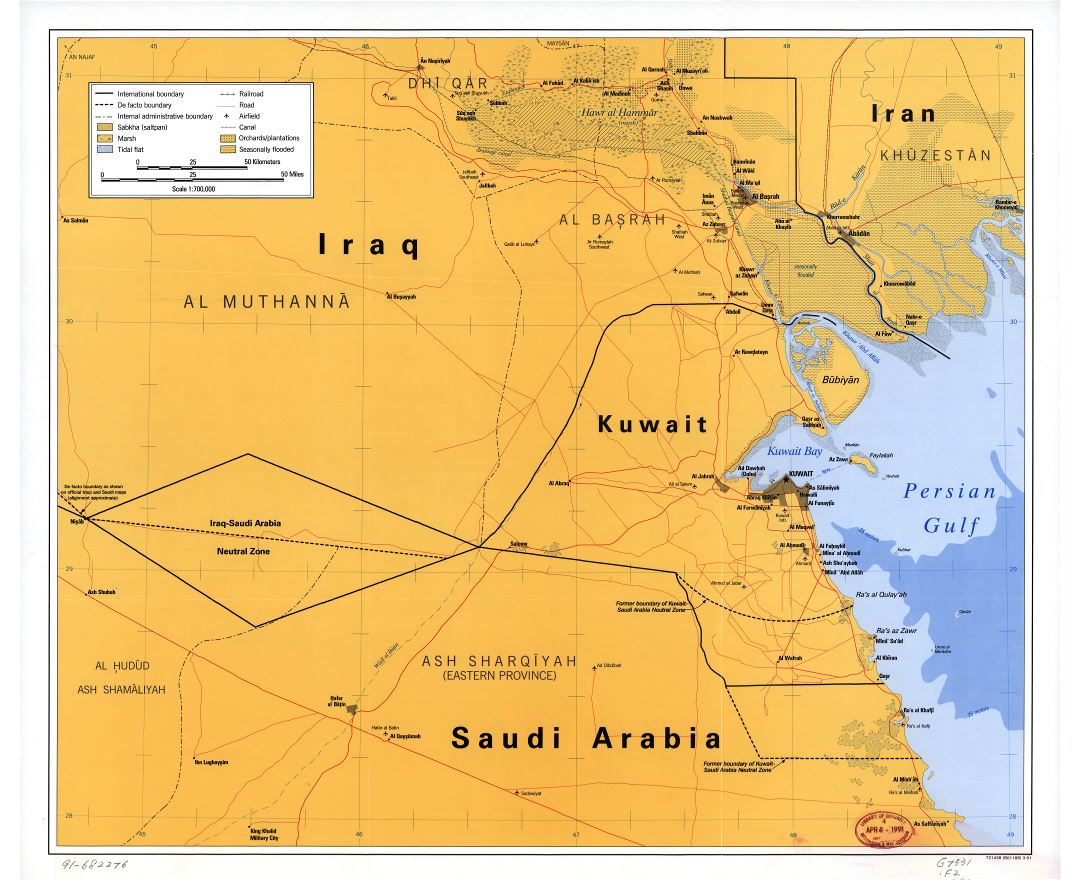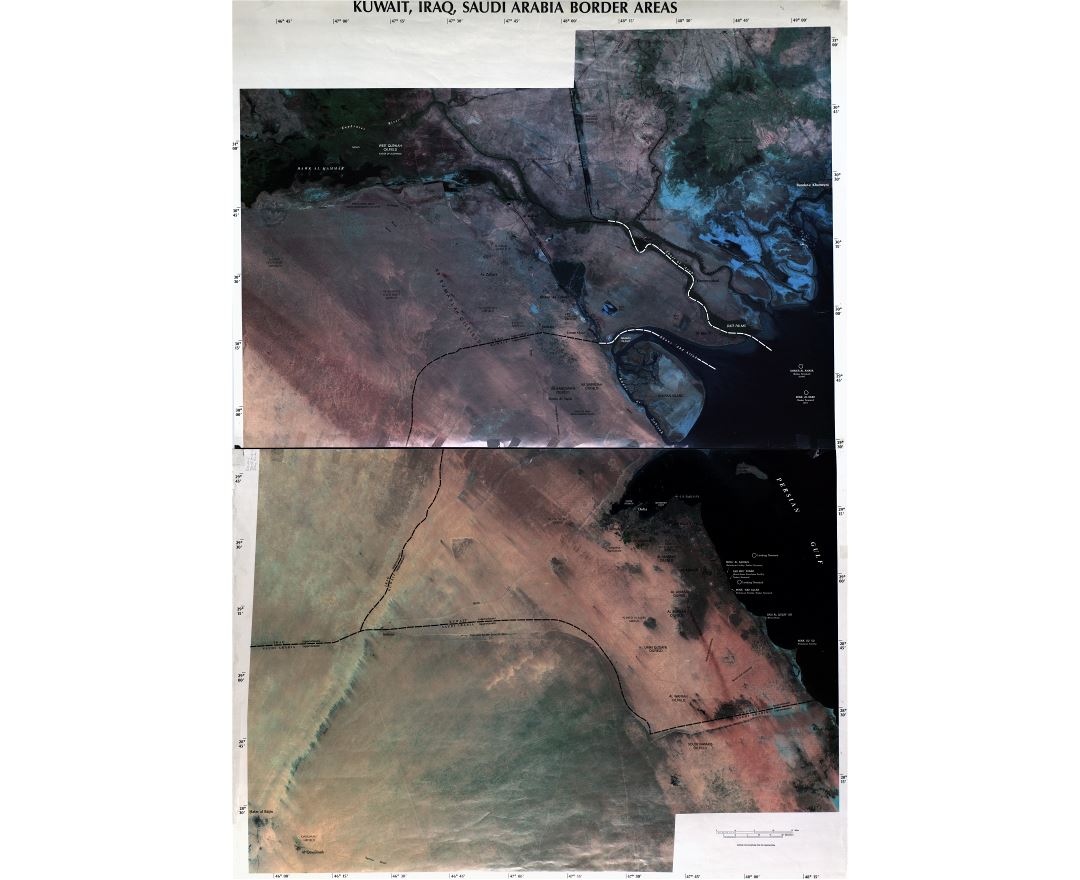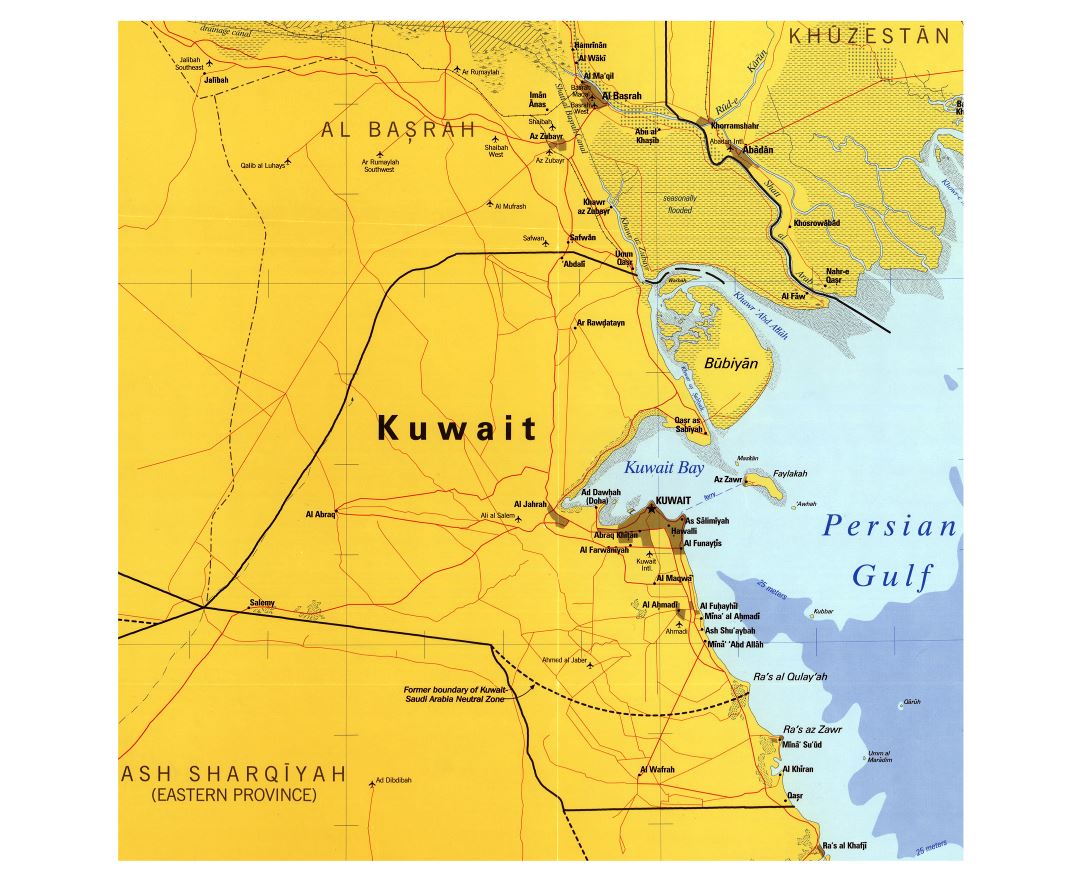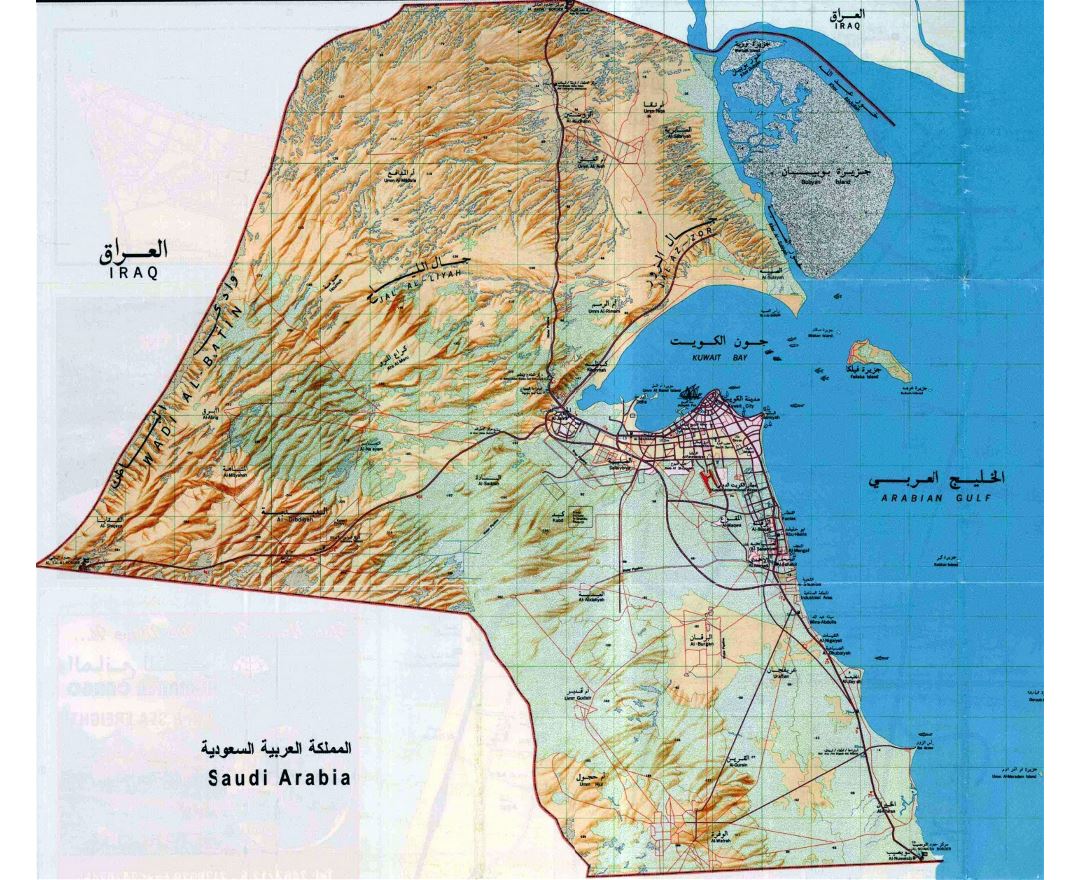Kuwait
Kuwait, officially the State of Kuwait, is a country in Western Asia. Situated in the northern edge of Eastern Arabia at the tip of the Persian Gulf, it shares borders with Iraq and Saudi Arabia. As of 2016, Kuwait has a population of 4.2 million people, 1.3 million are Kuwaitis and 2.9 million are expatriates. Expatriates account for 70% of the population.
Oil reserves were discovered in 1938. From 1946 to 1982, the country underwent large-scale modernization. In the 1980s, Kuwait experienced a period of geopolitical instability and an economic crisis following the stock market crash. In 1990, Kuwait was invaded by Iraq. The Iraqi occupation came to an end in 1991 after military intervention by coalition forces. At the end of the war, there were extensive efforts to revive the economy and rebuild national infrastructure.
Kuwait is a constitutional emirate with a semi-democratic political system. It has a high income economy backed by the world's sixth largest oil reserves. The Kuwaiti dinar is the highest valued currency in the world. According to the World Bank, the country has the fourth highest per capita income in the world. The Constitution was promulgated in 1962, making Kuwait the most democratic country in the region. Kuwait ranks highly in regional metrics of gender equality, as it has the region's highest Global Gender Gap ranking.

